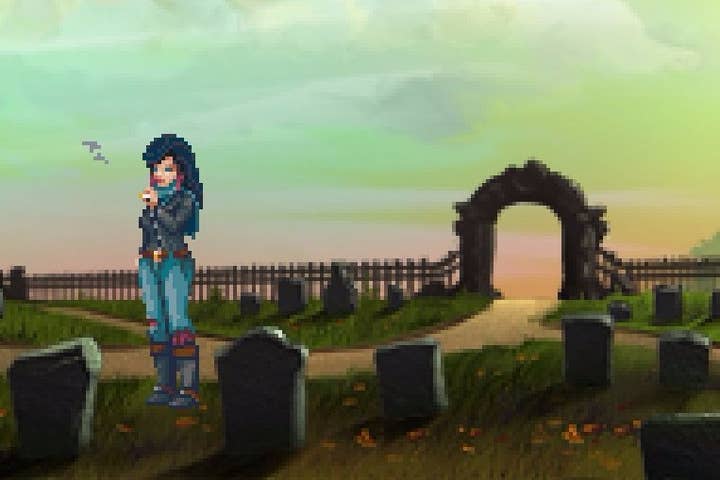Raw Fury wants to close the gates on the "developer valley of death"
Poor launch sales can mean the end for smaller studios - is it time to reconsider how publishers build and judge success?
When Kathy Rain launched well below expectations, Raw Fury chose not follow "the established and accepted norm" and cut its losses. In an age of digital storefronts and vast choice, the indie publisher reasoned that it now makes more sense to back the developer.
Kathy Rain was developed by Joel Staaf Hästö, a new client for Raw Fury. The publisher had previously worked with a studio called Noio and Licorice, whose game Kingdom recouped its investment within 24 hours. Neither Joel Staaf Hästö nor Raw Fury anticipated the same high degree of success, but despite its user and critic reviews falling in line with their expectations, Kathy Rain hasn't come near to covering costs after two weeks on sale.
"When we partnered up with Joel Staaf Hästö, the one-man army we know as Clifftop Games, we didn't do so expecting to become insta-rich when the game launched," the company said in a blog post. "We expected his game to be loved though, as we loved it. And we expected it to do well financially over a longer period of time. It's a niche game from a new developer in a very tough space within games, and these things take time and patience.
"Our long term growth is found in our reputation, approach, and behavior. We want our actions to speak loudly"
"Even though things have started off a bit slowly on the sales side, we know that eventually the game will turn a nice profit. It will grow a long tail because of its critical acclaim, timeless looks, and a story that tackles taboo stuff not typically discussed in video games."
The same could be said for many indie titles, but while a publisher like Raw Fury can, "afford to be patient," the same can't be said for Clifftop Games. "Way too often the developer can't survive this sort of scenario, usually because they don't have other sources of income. They are - to put it frankly - fucked. This is especially true for newer and smaller developers."
Raw Fury's team have witnessed the repercussions of launches like Kathy Rain many times before; the developer forced into work-for-hire, to sell their IP, to give up even more of the eventual revenue, and in extreme cases to leave the industry altogether.
"All the while, your critically acclaimed game goes on to slowly but surely cover the investment made by your publisher, allowing them to at least recover their investment and perhaps even make a bit of a profit over time."
This time, Raw Fury is taking a different approach. The company has pledged to support Clifftop Games for another 12 months, or until the point at which Kathy Rain has recovered its investment and Clifftop's revenue share can keep the studio going. The terms of the existing deal will not be altered, Clifftop will retain ownership of its IP, and it will be free to work on other projects in that 12 month period.
"Even though things have started off a bit slowly on the sales side, we know that eventually the game will turn a nice profit"
"We consider this an investment in ourselves," Raw Fury said. "Our long term growth is found in our reputation, approach, and behavior. We want our actions to speak loudly. We've helped create and publish two amazing games already and here is an opportunity to affect a broader change when it comes to the dynamics of a classic publisher/developer relationship.
"In an industry that is smack full of impostor syndrome, depression, anxiety, and other things that are sometimes associated with the emotional work that goes into creativity, it is also important to think about how we measure success and failure.
"We should all think about how we perceive and handle our misses instead of only embracing our hits. For us, Kathy Rain feels like a success. Clifftop Games is a success."
The full blog post can be found on the Raw Fury website, where the publisher is keen to start a discussion about fostering, " an indie ecosystem that thrives even when we don't hit our targets right off the bat."

